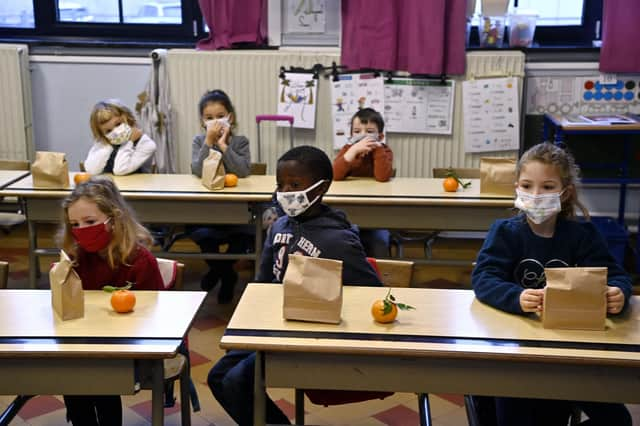Covid's effect on children's education risks blighting Scotland for generations to come – Scotsman comment


However, it is all-too-easy to become so caught up in our most urgent problems that we develop blinkers to others as they grow into crises of potentially terrifying magnitude.
The Covid pandemic has had such an all-encompassing impact on our society that its side-effects – medical, economic or otherwise – are many and serious, but the harm caused to children’s education may well be among the most long-lasting.
Advertisement
Hide AdAdvertisement
Hide AdNew figures show that just 70 per cent of primary pupils achieved the expected standard for writing, with 75 per cent for numeracy and reading, and 83 per cent for listening and talking. Overall, the number of pupils who had the expected levels of literacy and numeracy fell by 5.4 and 4.4 percentage points respectively between 2018/19 and 2020/21.
This means that large numbers of children are falling behind on basic life skills that are necessary for their further studies and later in the workplace.
Predictably, the poorest youngsters have been suffering the most from the disruption to their schooling. The attainment gap for literacy between those in the most and least deprived areas in Scotland widened from 20.7 percentage points in 2018/19 to 24.7 in 2020/21, and from 16.8 to 21.4 percentage points for numeracy.
For the least well-off in our society, school is not just a place of learning and companionship, but also of warmth, food and life-enhancing opportunities like taking part in sport.
A similarly worrying trend can also be seen in obesity, with new figures showing 35.7 per cent of P1 pupils living in the most deprived areas were at risk of being overweight or obese in 2020/21, up by 8.4 points on the previous year. The figure for the wealthiest areas was 20.8 per cent after a rise of 3.6 points.
The consequences of such a large disparity in life-chances – for individuals, society and the economy – could blight Scotland for generations to come.
We all want this country to be one where people are well-educated and prosperous, healthy and happy. It is far from that and Covid’s side-effects are leading us further astray.
A message from the Editor:
Thank you for reading this article. We're more reliant on your support than ever as the shift in consumer habits brought about by coronavirus impacts our advertisers.
If you haven't already, please consider supporting our trusted, fact-checked journalism by taking out a digital subscription.
Comments
Want to join the conversation? Please or to comment on this article.
